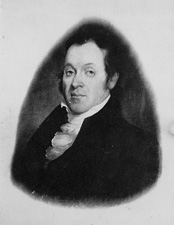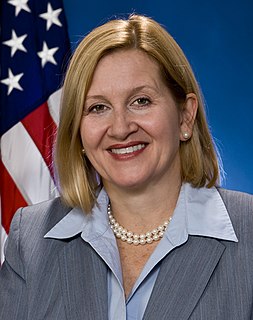
William Marks was an American lawyer and politician from Beaver, Pennsylvania. He served in both houses in the state legislature and was the Speaker for the House from 1813 to 1819. He later represented Pennsylvania in the United States Senate.

The United States Senate elections of 1908 and 1909 were held to determine the winners of the 31 class 3 Senate seats up for election, as well as various special elections to fill vacancies or confirm appointments. Until the 17th Amendment, which passed in 1913, Senators were elected by state legislatures. However, some states had already begun direct elections during this time. Oregon pioneered direct election and experimented with different measures over several years until it succeeded in 1907. Soon after, Nebraska followed suit and laid the foundation for other states to adopt measures reflecting the people's will. By 1912, as many as 29 states elected senators either as nominees of their party's primary or in conjunction with a general election. The Republicans lost two seats overall.
Christine M. "Tina" Tartaglione is an American politician from Pennsylvania currently serving as a Democratic member of the Pennsylvania State Senate, representing the 2nd District since 1995. The district is located in lower Northeast Philadelphia.

Lisa Baker is an American politician from Pennsylvania currently serving as a Republican member of the Pennsylvania State Senate for the 20th District since 2007. She is chairman of the Senate Judiciary Committee.

Elections for the Pennsylvania State Senate were held on November 5, 2002, with even-numbered districts being contested. State Senators are elected for four-year terms, with half of the Senate seats up for a vote every two years. The term of office for those elected in 2002 ran from January 3, 2003 until November 28, 2006. Necessary primary elections were held on May 21, 2002.

The 2006 Elections for the Pennsylvania State Senate were held on November 7, 2006, with even-numbered districts being contested. Necessary primary elections were held on May 16, 2006. State Senators are elected for four-year terms, with half of the Senate seats up for a vote every two years. Members elected in 2006 were inaugurated on January 2, 2007.

Kim Ward is a Republican member of the Pennsylvania State Senate. Ward represents the 39th Senatorial District which covers the central portions of Westmoreland County, Pennsylvania.

The Pennsylvania gubernatorial election of 1994 was held on November 8, 1994. The incumbent governor, Bob Casey, Sr. (Democrat), was barred from seeking a third term by the state constitution. The Republican Party nominated Congressman Tom Ridge, while the Democrats nominated Mark Singel, Casey's lieutenant governor. Ridge went on to win the race with 45% of the vote. Singel finished with 39%, and Constitution Party candidate Peg Luksik finished third, garnering 12% of the vote.
The United States Senate elections of 1856 and 1857 were elections which had the young Republican Party assume its position as one of the United States's two main political parties. The Whigs and Free Soilers were gone by the time the next Congress began.
The United States Senate elections of 1868 and 1869 were elections which had the Republican Party maintain their majority in the United States Senate. However, six former Confederate states were also readmitted separately from the regular election, each electing two Republicans. This increased the Republicans' already overwhelming majority to the largest proportion of seats ever controlled by the party.
The United States Senate elections of 1878 and 1879 were elections which had the Democratic Party retake control of the United States Senate for the first time since before the Civil War.
The United States Senate elections of 1880 and 1881 were elections that coincided with the presidential election of 1880, and had the Democratic Party lose five seats in the United States Senate. The newly elected Readjuster senator caucused with the Republicans, and the Republican Vice President's tie-breaking vote gave the Republicans the slightest majority. All of that changed September 19, 1881 when the Vice President ascended to the Presidency and the Senate became evenly-divided.
The United States Senate elections of 1866 and 1867 were elections that saw the Republican Party gain two seats in the United States Senate as several of the Southern States were readmitted during Reconstruction, enlarging their majority.
The United States Senate elections of 1860 and 1861 were elections corresponding with Abraham Lincoln's election to the presidency. The nascent Republican Party increased their Senate seats in the regular elections, and after southern Democrats withdrew to join the Confederacy, Republicans gained control of the United States Senate. To establish a quorum with fewer members, a lower total seat number was taken into account.

The 2012 United States Senate election in Pennsylvania was held on November 6, 2012, alongside a presidential election, other elections to the United States Senate in other states, as well as elections to the United States House of Representatives and various state and local elections. Incumbent Democratic U.S. Senator Bob Casey, Jr. ran for and won re-election to a second term, defeating Republican nominee Tom Smith, and Libertarian nominee Rayburn Smith.

Robert Patrick Casey Jr. is an American attorney and politician serving as the senior United States Senator from Pennsylvania, a seat to which he was first elected in 2006. He previously served as Pennsylvania Auditor General from 1997 to 2005 and as Pennsylvania Treasurer from 2005 to 2007.

The 2022 United States Senate elections will be held on November 8, 2022, with 34 of the 100 seats in the Senate being contested in regular elections, the winners of which will serve six-year terms in the United States Congress from January 3, 2023, to January 3, 2029. Senators are divided into three groups, or classes, whose terms are staggered so that a different class is elected every two years. Class 3 senators were last elected in 2016, and will be up for election again in 2022.

The 2018 elections for the Pennsylvania State Senate were held on November 6, 2018, with 25 of 50 districts being contested. Primary elections were held on May 15, 2018. The term of office for those elected in 2018 began when the Senate convened in January 2019. Pennsylvania State Senators are elected for four-year terms, with half of the seats up for election every two years.









